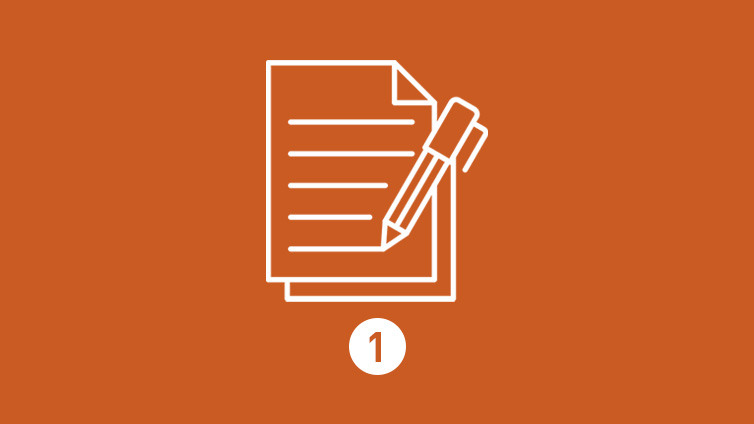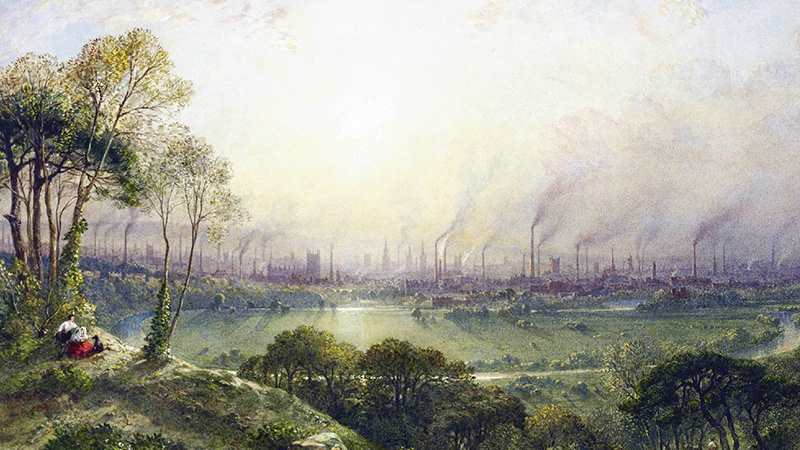Industrialization
Teacher Resources
Driving Question: How was the Industrial Revolution experienced differently by people around the world?
Industrialization revolutionized production, transportation, time, community, and identity—reshaping society as fast as a locomotive. How did such a massive shift unfold? What began on an island spread globally, with both positive and negative impacts that varied across people and communities.
Learning Objectives:
- Understand the origins and effects of the Industrial Revolution.
- Evaluate how the Industrial Revolution changed communities in the long nineteenth century.
- Create arguments using historical evidence to support claims and communicate conclusions through informal writing.
Vocab Terms:
- automation
- factory
- fossil fuel
- industrialization
- raw material
- rural
- urban
Opener: Industrialization
To teach this lesson step, refer to page 2 of the Lesson 3.1 Teaching Guide.
Want to bring more informal writing like this opener into your classroom? Our Informal Writing Routines one-pager is a great place to start!
VHS tapes and the Walkman aren't the only game-changing inventions that faded over a few decades. Explore innovations from the 1700s to see which ones stood the test of time—and which didn’t.
Looking Ahead
To teach this lesson step, refer to page 3 of the Lesson 3.1 Teaching Guide.
Get an idea of how other teachers use Unit Notebooks by checking out this conversation in the OER Project Teacher Community.
The Unit 3 Notebook helps you focus on what’s most important to know in the unit, and is a record of how your thinking changes as you learn more.
Industrialization
To teach this lesson step, refer to page 3 of the Lesson 3.1 Teaching Guide.
The Video Guide and Reading Guide are both packed with helpful strategies to teach this lesson step!
How was the Industrial Revolution experienced by people around the world? Dig into that question in the video, and then read the article to take your learning even further.
-
Guiding Questions
-
Before you watch
Preview the questions below, and then review the transcript.
While you watch
Look for answers to these questions:
- What argument is made about the production of goods just before the Industrial Revolution?
- What big change was the foundation of industrialization?
- How did industrialization change human networks?
- How did industrialization change our sense of community?
- What happened to exports, labor, and CO2 emissions when states industrialized?
- What brought about the industrialization of Nagasaki?
After you watch
Respond to these questions: Do you think industrialization was a good thing for society? Why or why not?
-
Guiding Questions
-
Before you read
Preview the questions below, and then skim the article. Be sure to look at the section headings and any images.
While you read
Look for answers to these questions:
- What are some of the elements of modern life that didn’t exist before 1750?
- How did the British environment contribute to its industrialization?
- How did expanding global networks help Britain industrialize?
- How did Britain’s empire contribute to its industrialization?
After you read
Respond to this question: How was industrialization experienced differently by people in different regions and communities?
Framing Unit 3
To teach this lesson step, refer to page 5 of the Lesson 3.1 Teaching Guide.
Need a refresher on the course frames? Look no further than the Frames Guide.
What can the frames tell us about industrialization? Explore big changes in production and distribution in the video, and then draw the course frames in an activity that puts your knowledge to use.
-
Guiding Questions
-
Before you watch
Preview the questions below, and then review the transcript.
While you watch
Look for answers to these questions:
- What did preindustrial production and distribution look like?
- What was the difference between industrialization and earlier innovations in production and distribution?
- What was the big advantage of industrialization?
After you watch
Respond to this question: What do you think industrialization might look like if you viewed it through the communities or networks frame?
Closer: Industrialization
To teach this lesson step, refer to page 6 of the Lesson 3.1 Teaching Guide.
Remember to check out the Openers and Closers Guide for more information on these lesson bookends.
How are the big ideas of industrialization connected? Explore the interconnected and far-reaching impacts of the Industrial Revolution.
Essay Review
To teach this lesson step, refer to page 6 of the Lesson 3.1 Teaching Guide.
Don’t forget to have the OER Project Writing Rubric handy when you teach this activity!
Using either your own DBQ essay from Unit 2 or a sample essay, evaluate how well the writing shows claim and focus.






